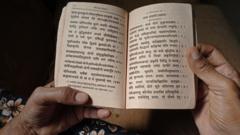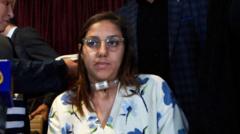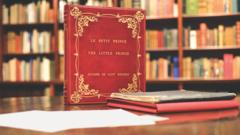New research by literature scholar Matthew Steggle, set to be published in the journal *Shakespeare*, is poised to reshape perceptions of William Shakespeare's marriage to Anne Hathaway. The study highlights a previously overlooked letter fragment, which addresses "Mrs. Shakspaire," providing a potential glimpse into the playwright's life that contradicts the stereotype of a distant and neglectful husband.
Traditionally, Shakespeare is thought to have abandoned his family in Stratford-upon-Avon to pursue a thriving career in London, allegedly escaping the "humiliation of domestic feuds." This narrative, largely popularized in the 19th century, depicted Hathaway as a mere obstacle to Shakespeare’s literary genius. The notion was further reinforced by the infamous "second-best bed" bequeathed to her in his will, interpreted by many as a sign of disdain.
However, Steggle's investigation into the letter fragment, discovered in a book binding during restoration work in 2016, offers fresh insights. First noted by an amateur historian in 1978, the letter had gained minimal traction despite its potential significance. Steggle stumbled upon it while researching a biography of Shakespeare and was surprised at its lack of prior attention.
Using modern technological advancements, he managed to trace individuals mentioned in the ages-old correspondence, bolstering the likelihood that the letter was indeed linked to Hathaway. This suggests a more nuanced relationship might have existed, contradicting the longstanding belief that Shakespeare was emotionally detached from his wife and family.
The findings of this research could shift the way scholars and enthusiasts interpret Shakespeare's life, opening up discussions about the complexity of relationships in the context of 16th-century norms and expectations. Steggle’s work invites a reevaluation of the Bard's legacy not only as a playwright but also as a husband, hinting that his domestic life may have played a more pivotal role in shaping his literary inspirations than previously acknowledged.















